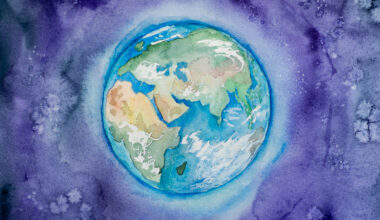Last month, 187 governments signed off on amendments that will dramatically expand the Basel Convention’s controls on how plastic waste is exported and imported in the world.
When the news reached me I was thrilled, but also a bit surprised. Normally, changes to important international policies such as these tend to take forever, but it was only last year that the Norwegian government proposed these amendments. And they’re not just formalities that in the end won’t really mean anything.
This new plastic waste ban is a big deal. It will most likely re-shape the world’s waste trade quite a bit.
The waste trade began in the 1980s when developed countries started exporting waste due to more stringent regulations on how to dispose of toxic waste on a national level. Low-income countries saw this as an opportunity to increase their foreign exchange earnings and started to receive the hazardous waste.
However, it wasn’t long until the problems with this unequal trade-off became apparent. So, in 1989, the Basel Convention was adopted in order to control the cross-border movement and disposal of hazardous waste.
“It will most likely re-shape the world’s waste trade quite a bit”
In the original legal text plastic waste wasn’t included, but since then it has grown to become a major export good due to the rampant growth of plastic production and consumption in the world.
It has also become more and more obvious how harmful plastic waste is to our planet with staggering amounts of plastic litter in our environment. Just the other day I read a prediction saying that our oceans will contain more plastic than fish by the year 2050 if we continue at the same rate.
The fact that several toxic chemicals such as phthalates and other hormone disrupting substances tend to be present in plastics, makes this a recipe for disaster.
Without going into too much detail about the specific changes to the Basel Convention, it is clear that the waste trade and the recycling industry will be drastically changed by them. To even be allowed for exportation, plastic waste will need to be well-sorted and pass additional inspections to determine that they are “clean” and recyclable. For mixed plastic waste – which is most often the case – movement across borders will be even more difficult.
“The biggest loser in all of this is – undoubtedly – the United States”
New rules will be applied that requires special notification of the destination country before the shipment is approved as well as additional documentation of how the material is processed.
The biggest loser in all of this is – undoubtedly – the United States. The country is one of the biggest plastic waste exporters in the world, exporting over 157,000 large shipping containers of mixed plastic waste to low-income countries last year alone. As the country is not a party to the Basel Convention – the US government signed it back in 1989 but has not ratified it – it will, in principal, be banned from trading plastic waste with countries that are parties to the Convention.
Most likely, the US government will have to re-shape its whole waste management structure and deal with most of its own plastic waste in the future.
The winners are instead the citizens of the low-income countries and, well… Planet Earth.
Since the Chinese government imposed a ban on the import of plastic waste in 2018, exporting countries have turned to other nations such as Vietnam, Malaysia and India, which have reported enormous increases in imports.
Southeast Asia has become the world’s plastic waste recycling hub with recycling factories popping up like mushrooms to handle all the waste. However, they often operate without a licence, use low-end technology and environmentally harmful methods of disposal.
“The winners are instead the citizens of the low-income countries and, well… Planet Earth”
Furthermore, a common practice from developed countries has been to export plastic waste aimed for recycling but what they receive is often so poorly separated that it is impossible to recycle anything at all.
So, what does this lead to? Well, it leads to low-income countries becoming trash cans and their citizens being exposed to toxic chemicals on an alarming level.
This new plastic waste ban will, at least, give these countries sufficient information about the plastic waste prior to receiving it for them to refuse it if it’s not recyclable. Hopefully, more rigorous controls and better sorted waste will lead to more of the plastic waste actually being recycled, sparing both the people and the environment of disease and pollution.
Even though the world as a whole drastically needs to reduce plastic consumption, these changes are a step in the right direction.

Theresa Kjell
Senior Business and Policy Advisor





